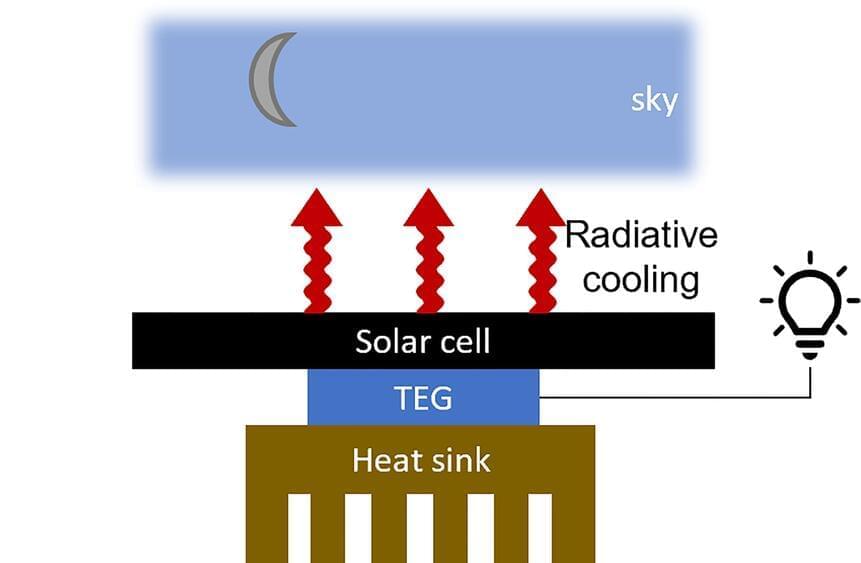About 750 million people in the world do not have access to electricity at night. Solar cells provide power during the day, but saving energy for later use requires substantial battery storage.
In Applied Physics Letters, researchers from Stanford University constructed a photovoltaic cell that harvests energy from the environment during the day and night, avoiding the need for batteries altogether. The device makes use of the heat leaking from Earth back into space—energy that is on the same order of magnitude as incoming solar radiation.
At night, solar cells radiate and lose heat to the sky, reaching temperatures a few degrees below the ambient air. The device under development uses a thermoelectric module to generate voltage and current from the temperature gradient between the cell and the air. This process depends on the thermal design of the system, which includes a hot side and a cold side.
